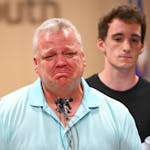While Minnesotans are still on the hunt for open COVID-19 vaccine appointments, it's not difficult to see a time in the months ahead when the shots' scarcity turns to relative abundance thanks to the newly authorized Johnson & Johnson vaccine and expanding supplies from Pfizer and Moderna.
Pushing vaccine uptake as close to 100% as possible in those eligible is the key to ending the pandemic. It's not too soon to dismantle hurdles that might deter some from getting the vaccine when it's more widely available.
One such potential roadblock in Minnesota was flagged recently during a legislative committee meeting led by Sen. Karin Housley, R-St. Mary's Point. Housley and Sen. Carrie Ruud, R-Breezy Point, raised strong concerns about the number of questions asked of those who sign up to use the state's new voluntary Vaccine Connector, an online tool to help Minnesotans determine when they're eligible for the COVID vaccine and where to find it.
In particular, the legislators objected to the query about sexual orientation. They worried that some, especially older generations, might be confused by it or object to it and not follow through on signing up. While it's important to note that site users can choose not to answer the question, that may not be clear to all of them. The Minnesota Department of Health (MDH) should remove this question.
The information gathered by the query isn't used for vaccine prioritization. Its purpose is helping state officials gauge whether vaccination information is reaching the lesbian, gay, bisexual and transgender (LGBT) community. At the same time, this information's medical pertinence to COVID-19 transmission or lethality is not broadly understood, unlike other demographic distinctions such as age, ethnicity, pre-existing conditions or occupations (such as front-line health care workers).
Its continued inclusion comes with a potential cost: citizens resisting using the Vaccine Connector because they feel the question is too invasive. In turn, this could jeopardize the broad vaccine uptake, particularly among high-risk seniors, needed to halt the pandemic.
If the question isn't removed, MDH should make it clearer that the question can be skipped altogether. Currently, users are required to choose an answer from a list of options, though one of them is "prefer not to respond." An explanation for why the info is being gathered would also be helpful if the question remains on the Vaccine Connector.
It's important to note that other states have something similar to the Vaccine Connector, and these too ask a number of questions of users.
The Minnesota Vaccine Connector is also just one of many options for finding a vaccination appointment. Immunization is available through health care providers, big pharmacy chains and some retailers, though demand still usually exceeds supply at this point. You don't have to sign up with the Vaccine Connector to get the shot.
The dust-up over the question illustrates how difficult it is to work in public health during the pandemic. Minnesota Health Commissioner Jan Malcolm faced demands for weeks from reporters for vaccination data specific to underserved minority communities (which just became available Friday). Yet her agency is now facing criticism over the Vaccine Connector question aimed at gathering some of the data needed to address equity concerns.
It is to Malcolm's credit that she's never responded with anything less than patience and professionalism when caught in cross currents. We hope she'll see the broader good served by improving the Vaccine Connector.

